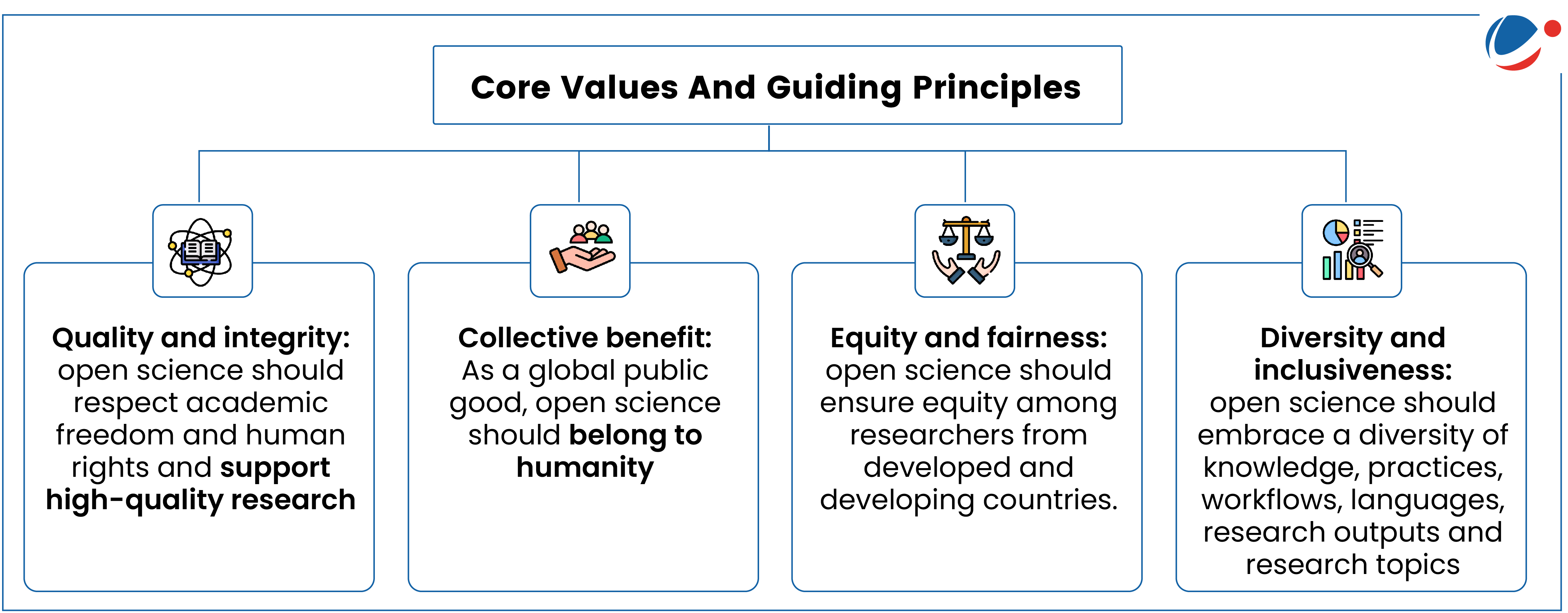UNESCO made this call while highlighting that ‘adoption of open science is limited by the black-box (opaque) nature of AI systems and private companies outpacing academic research in AI’.
About Open Science
‘UNESCO Recommendation on Open Science’ adopted in 2021 defines open science, provides its core values and priority actions for it.
- Definition: Open science refers to an inclusive construct that combines various movements and practices aiming to make multilingual scientific knowledge openly available, accessible and reusable for everyone.

Why is Open Science Threatened Due to AI?
Open science benefits AI by providing data through participative research, however AI poses threat to open science due to:
- Reproducibility crisis: Other researchers cannot replicate experiments conducted using AI tools.
- Interdisciplinarity: Limited collaboration between AI and non-AI disciplines can lead to an inconsistent uptake of AI across science.
- Data challenges: While high quality data is foundational to AI applications, researchers consistently face challenges related to its volume, heterogeneity and potential for bias.
- Changing incentives: Incentives across the scientific ecosystem may be increasing pressure on researchers to be ‘good at AI’ rather than ‘good at science’.
Addressing these challenges requires applying open science principles to AI, particularly focusing on transparency.





